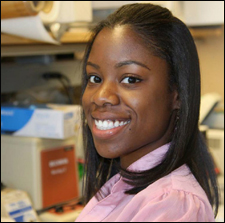“When I started teaching, it was very important for me to connect students to what we do in the real world and get them out of the classroom,” said John Bers, associate professor of the practice of engineering management.
Suffice it to say Bers has accomplished that and more with his series of client project courses that starts with Technology Marketing, followed by Enterprise Systems Design and culminates with the Engineering Management Capstone Project: Innovation Strategy.
Through these courses, students work closely with an industry partner to develop marketing strategies for innovative products, design business processes and systems, analyze market potential, and essentially, put all the pieces together for a successful product or business launch.

“Our students work with everyone from established companies such as Bridgestone and Nissan to smaller companies and startups,” said Bers, “several of which are based on technology developed at Vanderbilt.”
Just last semester Bers placed a team of students with Universal Robotics, a software engineering company that spun out of Vanderbilt and specializes in state-of-the-art artificial intelligence with multi-dimensional sensing and motion control. Universal Robotics was looking to expand its reach into medical diagnostics and relied on Bers’ students to help analyze the market and develop a marketing strategy for the expansion. That project resulted in an internship for one of the graduating students and some solid market research and strategic ideas for Universal Robotics as they begin their expansion.
“Professor Bers’ Technology Marketing class provided an excellent incubator for business and academia to create something neither could on their own,” said Hob Wubbena, vice president of Universal Robotics, Inc.

“The students, Marquicia Pierce and Alana Mann, provided energy and talent to define in detail a market opportunity. Universal gave them a real-world market situation to sort through as well as mentoring along the way. The end result speaks for itself – an internship is continuing to bring this opportunity forward for potential investment,” Wubbena said.
Another team of students worked with JetStream, a hybrid alternative energy system developed by a former Vanderbilt management technology graduate student.
JetStream has enjoyed the program so much, it has now gone through all three of the engineering management courses. In the spring of 2013, students completed a capstone project that included the development of a business plan and a marketing strategy as well as an early prototype. This spring, in collaboration with the School of Engineering’s design program, a student team will build a prototype and work through design challenges. Design projects are required of all senior engineering undergraduates, and according to Bers, this collaboration is doubly beneficial.
“Through this connection, student teams experience the business and technical sides of a technology innovation, just as the founders of technology startups,” said Bers. “We’ve done this successfully for two years now, with JetStream and another small company, and are hoping to build more of these connections for students and business sponsors.”
Solid relationships
As was the case with Universal Robotics, JetStream executives were quick to bring a student into the corporate mix on a more regular basis. JetStream has a student currently working through an internship and is eyeing other students for similar roles or entry level positions.
“From the minute we begin a project, we start thinking about follow-up opportunities like internships,” said Bers. “We want to create a natural progression – from project team member to intern to entry level hire. We are now seeing that happen.”
But, Bers pointed out that he expects that his courses help the business as much as they help the students. One aspect that his program stresses is the grooming of quality future employees.
“Our students focus on designing a full roadmap for these companies and learning how to coordinate all the moving pieces and help the company progress,” said Bers.
Take for example one of 2014’s early projects. After reaching out to CTTC’s New Ventures Team, Bers was introduced to a colleague who now serves as a project sponsor. Chemical Engineering Professor Matt Lang developed a mobile application that brings 3-D video recording and content generation to smart phones. A product like this has numerous potential applications, including medicine and surgery. A team of Bers’ students will fully assess the technology this spring as part of the Capstone Project.
“Solid relationships between the Vanderbilt research community, students and companies are forming out of this program,” Bers said. “The ongoing reinforcement and evolution of our program is just amazing.”
However, Bers is quick to add that the pressure is on.
“The students have to deliver,” Bers said. “I want these clients to get quality products and information. I want these clients back.”
Project sponsors must make an upfront commitment of one hour a week mentoring the student team. Students will give presentations at the middle and end of the course.